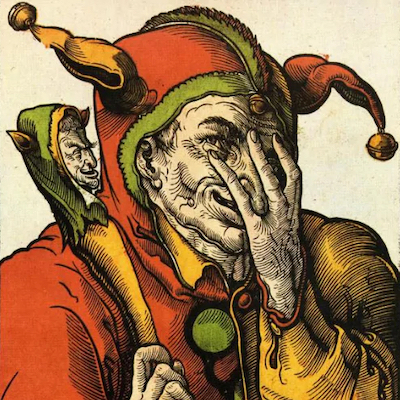Sacred Space

I've recently been facilitating in-house workshops on storytelling for presentations and talks. This started as a one-off effort, on request, and grew to be multiple workshops with over 300 people attending. One attendee invited me to be a guest speaker at our company's Toastmaster club meeting, of which he is currently president. I didn't take the invitation particularly seriously, meaning that I felt it would be a breeze to talk to a group of struggling speakers. Arrogantly, I approached this with an air of charity, expecting nothing in return for my time. I was humbled.
My talk was at the beginning of the meeting, and my plan was to leave immediately afterwards, but something made me stay. Toastmasters has several functionaries at each meeting, whose respective roles are to listen for grammar and language, to count the filler words, to measure time, and to offer feedback/observation. In part I was curious as to how I shaped up, but more than that I was touched by something in that room that I couldn't quite identify.
The second half of the meeting is dedicated to "table topics". This is where people do impromptu, 1-2 minute talks on a topic they are given in the moment. There was risk and courage in standing up in front of 20+ people to do this, and some speakers were clearly fearful and even visibly shaking—and yet they did it.
At the end of the meeting the functionaries gave their reports. I did well for language, but very poorly on filler words, clocking over 100 in my 20 minute talk. More interesting was the visual feedback one reviewer offered. I was doing things with the space and with my own body that apparently worked well for the talk, and yet of which I was barely conscious. Seeing this mirrored back to me, and hearing just how many times I um'd and ah'd made me realize there was much I was unaware of, and much I could learn.
I went back to the meeting a week later with the intention of joining as a member. This time there was a prepared speech by a member followed again by table topics. Toastmasters has a lot of ritual. The room is always set up the same way, with space for the speaker and tables and chairs positioned for observation. The meeting always opens with the toastmaster tapping the gavel and offering a welcome talk—which includes a joke, a word of the day (which speakers are invited to include in their talk), and the introduction of the meeting functionaries. Each person who speaks opens their talk with a formal acknowledgement of the other members. Every speaker is applauded before and after they talk.
It's easy to mock such ritual, and see it as cheesy, or as unnecessary overhead, but to do so misses something important. In between the two meetings I had listened to a Peter Block talk where he describes meetings in corporations—as they are and as they could be. He suggests that meetings need to be thought of as sacred space, offering attendees a compelling reason to participate, and space to discover and understand your fellow workers over following agendas. I realized what had attracted me to this meeting, to this group of people. This is sacred space. This is one meeting everyone choses to attend, where they discover value, and where they get to know each other in meaningful, even intimate ways. The talks people give range between knowledge sharing and personal revelation. Risks are taken, judgments are withheld and an air of shared growth is palpable.
This is a group of imperfect humans helping other imperfect humans, aspiring speakers getting better and inspiring others to get better. This is safe space that embraces great risk. And this is achieved without any need for hugs, or forced, phony "tell us how you feel" questions. It is achieved by ceremony and ritual. What they have in that room, once a week, and what I want to be a part of is something bigger than each individual—a gathering of smart people who leave their egos at the door, and open up to their fellows.
There is no other space like this at the corporation in which I work. I wish there was. We need it so badly. I imagine I will learn a lot at Toastmasters—on being a better speaker, for sure, but also on being a better citizen. I hope to discover ways of applying this level of trust and risk to other meetings I attend. I have no idea how to do that yet, but I'm wondering if formality is the key. This surprises me.
Palo Alto, 23/01/2015 comment
